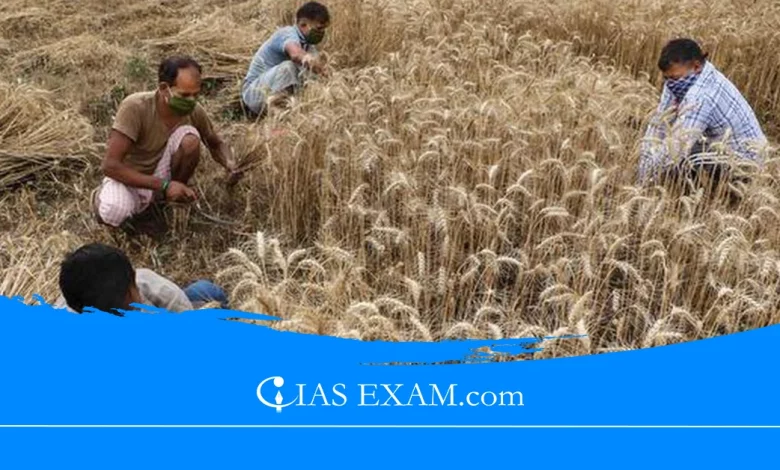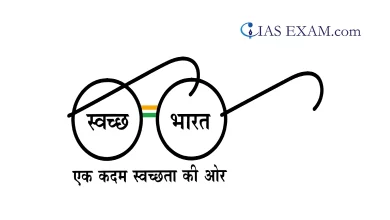UPSC Editorial Analysis
Guaranteed MSP is an Ethical Imperative
GS Paper 3 - Indian Economy, Agriculture

Context
As the upcoming general elections approach, agricultural issues have once again become the focus of attention. Farmers from the regions known for the Green Revolution have journeyed to the outskirts of the capital not only to express their concerns but also to influence the topics being discussed in the election campaigns.
Key Demands in Farmers Protest 2.0
- The headline demand in the farmers’ 12-point agenda is for a law to guarantee Minimum Support Price (MSP) for all crops, and the determination of crop prices in accordance with the Dr M S Swaminathan Commission’s report.
- Full debt waiver for farmers and laborers;
- Implementation of the Land Acquisition Act of 2013, with provisions for written consent from farmers before acquisition, and compensation at four times the collector rate.
- Punishment for the perpetrators of the October 2021 Lakhimpur Kheri killings;
- India should withdraw from the World Trade Organization (WTO) and freeze all free trade agreements (FTAs).
- Compensation for farmers who died during the Delhi protest in 2020, including a job for one family member.
- 200 (instead of 100) days’ employment under MGNREGA per year, the daily wage of Rs 700, and the scheme should be linked with farming;
- Strict penalties and fines on companies producing fake seeds, pesticides, fertilizers; improvements in seed quality;
Issues in Indian Agri Sector
- Highlighted agrarian issues: As general elections approach, farmers from agricultural hubs have converged at the capital’s border, highlighting their distress and pushing for agrarian issues to be prioritized in the electoral discourse.
- Unaddressed issues: While the government attempted to address concerns by offering to procure pulses, maize, and cotton at MSP, contingent upon crop diversification, farmers rejected these efforts, citing unaddressed core issues.
- Comprehensive solution: The perennial issue of fair pricing for farm produce, coupled with demands for legal assurances of MSP, underscores the need for comprehensive solutions to ensure agricultural sustainability and equitable distribution.
Significance of MSP and Challenges in Implementation
- Poor implementation: MSP serves as a crucial tool in ensuring food security by setting a benchmark price for agricultural commodities, yet its implementation remains poor, benefiting only a small percentage of farmers, primarily those cultivating paddy and wheat in specific states.
- Cycle of debt and distress: Most transactions occur below the MSP, rendering farming economically unviable for the majority and perpetuating a cycle of debt and distress, leading to tragic outcomes such as farmer suicides.
- Assurance: Legal guarantees for MSP are supported by constitutional provisions, with public opinion strongly favoring the farmers’ demand for such assurances.
Proposed Solutions and Policy Recommendations
- Amendment to State APMC Acts or Essential Commodities Act- Minor amendments to these laws could introduce provisions ensuring that transactions of farmers’ produce do not occur below the MSP.
- Development of Backward and Forward Linkages- Alongside legal recourse to MSP, it is proposed to develop essential backwards and forward linkages. This includes crop planning, market intelligence, and the establishment of post-harvest infrastructure for the storage, transportation, and processing of farm commodities.
- Enhancing MSP- There’s a suggestion to enhance MSP to provide a 50% profit margin over total cost, which is seen as feasible considering the current margins.
- Effective Procurement and Distribution- Emphasizing the need for effective procurement and distribution mechanisms as envisioned under the National Food Security Act, 2013, to ensure MSP and address hunger and malnutrition.
- Scheme ensures MSP- Recognizing the potential of schemes like PM-AASHA, which comprises price support, price deficiency payment, and incentives to private traders to ensure MSP, although it’s noted that such schemes have been sidelined in policy circles.
- Reducing Intermediaries’ Share– Establishing a legally binding MSP may reduce the share of intermediaries, leading to resistance from them. However, this reduction could lead to farmers receiving a higher percentage of the price paid by consumers.
- Addressing Free Market Dogma- Critiquing the adherence to free market ideology and advocating for government intervention, particularly in ensuring a legally binding MSP, to address the ongoing crisis in farmer incomes.
Way Forward
Inadequate MSP implementation leads to a vicious cycle of debt and dependence on intermediaries. Solutions include legal guarantees, better procurement, reducing intermediary influence, and challenging free market ideologies to ensure fair compensation for farmers.





.png)



